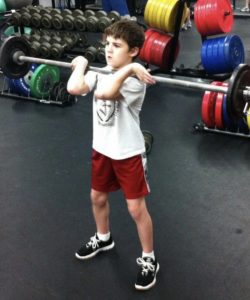C.O.R.E. Physical Therapy and Sports Performance PC,
is
owned and Operated
by
Dr. Mark Rathjen and Dr. Claire Rathjen. CORE is a family owned business that has been
established in
2015 and is proud to serve the greater Omaha metro area.
We specialize in the treatment of athletes.
For More information, Please feel free to contact us https://coreomaha.com/contact/
Please feel free to follow us at https://www.facebook.com/COREomaha/
To get started https://coreomaha.com/getting-started/
For more Blog information https://coreomaha.com/blog/
CORE Physical Therapy and Sports Performance PC.
17660 Wright St, suites 9/10
Omaha, NE 68130
402-933-4027
Full article https://pubmed.ncbi.nlm.nih.gov/26851290/
. 2016 Jul;50(13):781-95.
doi: 10.1136/bjsports-2015-095497.Epub 2016 Feb 5.
Effects and dose-response relationships of resistance training on physical performance in youth athletes: a systematic review and meta-analysis
- PMID: 26851290
- PMCID: PMC4941165
- DOI: 10.1136/bjsports-2015-095497
Free PMC article
Abstract
Objectives: To quantify age, sex, sport and training type-specific effects of resistance training on physical performance, and to characterise dose-response relationships of resistance training parameters that could maximise gains in physical performance in youth athletes.
Design: Systematic review and meta-analysis of intervention studies.
Data sources: Studies were identified by systematic literature search in the databases PubMed and Web of Science (1985-2015). Weighted mean standardised mean differences (SMDwm) were calculated using random-effects models.
Eligibility criteria for selecting studies: Only studies with an active control group were included if these investigated the effects of resistance training in youth athletes (6-18 years) and tested at least one physical performance measure.
Results: 43 studies met the inclusion criteria. Our analyses revealed moderate effects of resistance training on muscle strength and vertical jump performance (SMDwm 0.8-1.09), and small effects on linear sprint, agility and sport-specific performance (SMDwm 0.58-0.75). Effects were moderated by sex and resistance training type. Independently computed dose-response relationships for resistance training parameters revealed that a training period of >23 weeks, 5 sets/exercise, 6-8 repetitions/set, a training intensity of 80-89% of 1 repetition maximum (RM), and 3-4 min rest between sets were most effective to improve muscle strength (SMDwm 2.09-3.40).
Summary/conclusions: Resistance training is an effective method to enhance muscle strength and jump performance ihttps://coreomaha.com/wp-admin/edit.php?post_type=pagen youth athletes, moderated by sex and resistance training type. Dose-response relationships for key training parameters indicate that youth coaches should primarily implement resistance training programmes with fewer repetitions and higher intensities to improve physical performance measures of youth athletes.
Keywords: Adolescent; Children; Physical fitness; Strength; Weight lifting.
Published by the BMJ Publishing Group Limited. For permission to use (where not already granted under a licence) please go to http://www.bmj.com/company/products-services/rights-and-licensing/
-
Sports Med. 2018 Sep;48(9):2067-2089. doi: 10.1007/s40279-018-0926-0.PMID: 29736728
-
Sports Med. 2015 Dec;45(12):1693-720. doi: 10.1007/s40279-015-0385-9.PMID: 26420238 Free PMC article. Review.
-
J Sports Sci. 2020 May;38(10):1186-1195. doi: 10.1080/02640414.2020.1745502. Epub 2020 Mar 27.PMID: 32216524
-
Short-term Periodization Models: Effects on Strength and Speed-strength Performance.
Sports Med. 2015 Oct;45(10):1373-86. doi: 10.1007/s40279-015-0355-2.PMID: 26133514 Review. -
Sports Med. 2016 Mar;46(3):401-19. doi: 10.1007/s40279-015-

